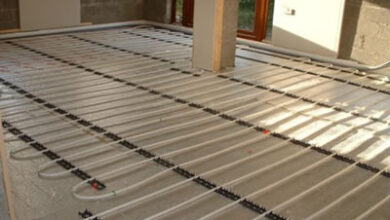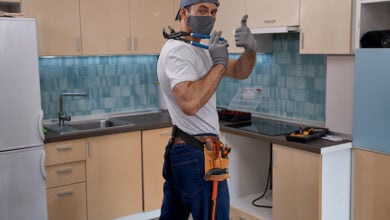How much does a new boiler cost in 2025?
The prices in this cost guide are accurate as of 2025*

Is your boiler old, broken, out of warranty, or simply not working as well as it used to? This might be a sign that it’s time for a new boiler. Whatever the reason, a new boiler comes with lots of benefits.
For starters, old boilers have a much lower efficiency percentage than more modern models. This means that, over time, a new boiler will save you money by reducing your energy bills. Since heating and hot water make up over half of your yearly energy bill, a very efficient boiler is a worthy investment.
A new boiler will also cut your carbon footprint. Upgrading appliances to more eco-friendly and energy-efficient models is an incredibly worthwhile home improvement, because it can also increase the value of your property.
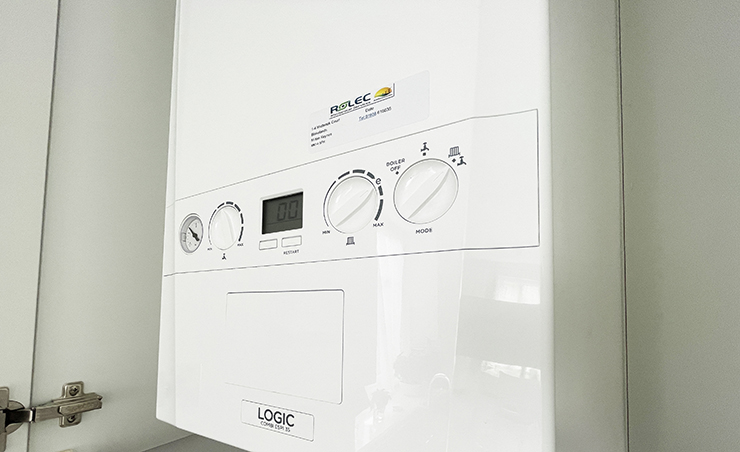
On average, a new boiler installation will cost you between £2,500 and £3,500.
The prices in this guide will always clarify where a sum includes cost of labour and materials, and where the price is referring to them separately. Lastly, the prices in this guide do not include VAT.
Expect to pay more if you live in London and the Southeast, where cost of labour can rise by up to 20% on average.
This guide includes:
How do you know when your boiler needs replacing?
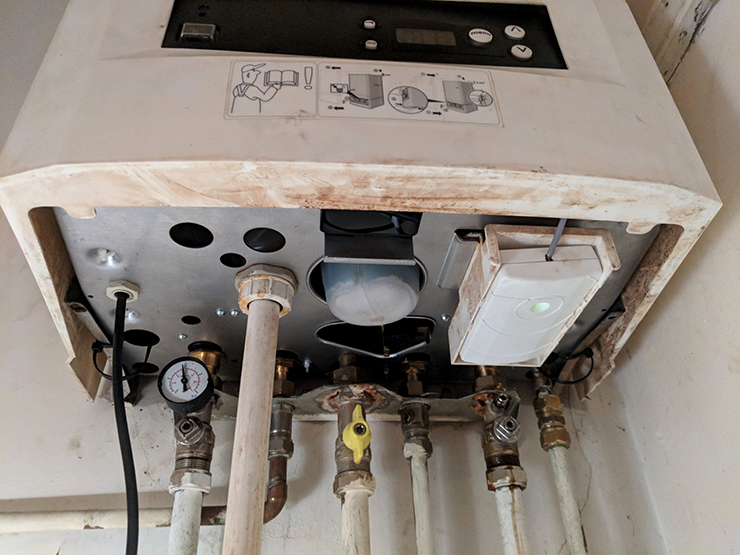
It’s time to change your boiler when it becomes more cost-efficient to replace it than to keep repairing it in the short-term, as repairs can get expensive.
A warning sign that you might need a new boiler is rising energy bills, despite you using your boiler the same amount as before.
Boilers tend to have a lifespan of around 10 years. If yours is around that age, and is starting to show signs of wear, then it might be time to replace your boiler. Since older models are less efficient, costing you more in energy bills, replacing yours is definitely worth it.
Close section ↑What boiler should I get?

By law, all modern boilers are now condensing boilers, which have a 90% efficiency rate. But there are still a wide range of options for you to choose from.
Which boiler you go for will depend on a few factors, including how much space you have, since some types, like combi boilers, are better suited for smaller houses with no space for large water tanks.
It’s also cheaper to install the same type of boiler that you already have, and it usually makes sense to stick to the same type (since it’s normally the right kind for your house). However, in some cases it makes sense to change boiler types. This guide includes the pros and cons of a range of different boilers, as well as how much it would cost you to buy and install each in your home.
Picking the right boiler is important, as it needs to be efficient enough to supply hot water to your entire home, whilst not wasting energy or leading to huge fuel bills either. If you aren’t sure which type would be best, tell us what you’re thinking and let a skilled tradesperson help you out.
What is the average cost of a new boiler?
The average cost of a new boiler is between £2,500 and £3,500.
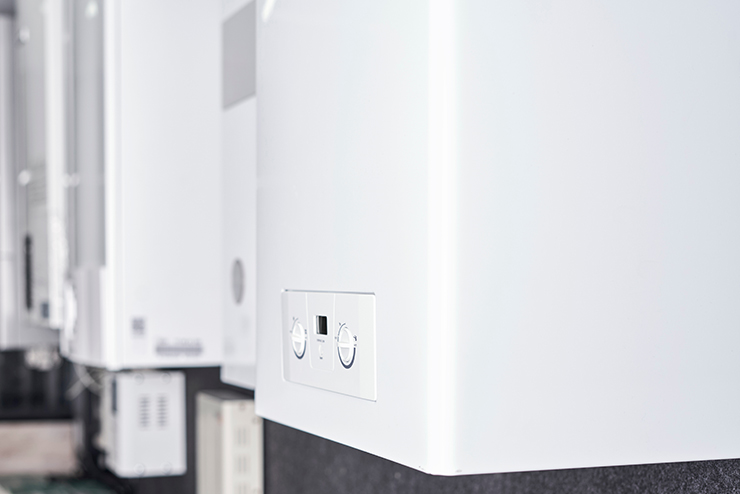
A few things can impact the cost of your boiler installation, including what type of boiler you go with, and how large the boiler is (in kilowatts).
Cost of labour will range, depending on where you live in the UK.
On average, a new boiler installation will cost you between £2,500 and £3,500.
How much you spend will depend largely on what boiler you choose to buy:
| System boiler | £3,200 |
| Traditional boiler | £2,800 |
| Combi boiler | £3,150 |
| Biomass boiler | £15,500 |
These prices exclude VAT.
Also, keep in mind that these prices look at straightforward, like-for-like installations in the same place as the previous boiler. Different kinds of installations will cost you a range of prices. Things like magnetic filters, in-line scale, condense pumps and smart thermostats can all increase the price.
Your pipes will need a Powerflush before your boiler can be installed. This is essential every ten years, and tends to cost between £500-900, depending on which company you hire and where you live in the UK. This price has been added to the above quotes (£650).
Tell us what you’re looking for, and get a free quote today.
Which fuel is used in boilers?
The main types of boiler fuel are oil, gas, LPG, and electricity.
| Oil fuelled boilers | Gas fuelled boilers | Electric fuelled boilers | LPG fuelled boilers |
| If your home is not connected to a gas mains, then an oil boiler is a popular alternative to gas. Oil is stored in a tank inside or near your property, where it’s then pumped into a combustion chamber. | Gas boilers are fuelled by natural gas which passes through the gas mains, and is usually used for closed systems. You can get combi, conventional and system boilers that are fuelled by gas. | Electric boilers use electricity to heat your water. Electric boilers pass water through an electric element to heat it, and are a popular alternative for homes not connected to a gas mains. | LPG stands for liquid petroleum gas, and is another good alternative to natural gas. They’re available to purchase in a pre-built format, and require a storage tank, which come in a variety of sizes. |
| Pros: The main fuel type for people that live off the grid Modern oil boilers are energy-efficient and easy to replace | Pros: The most popular heating source in the UK Gas is efficient, affordable and reliable One of the cheapest options for fuel Cheaper than electricity Can meet higher demand for hot water than electricity | Pros: Environmentally friendly More efficient (99%) than other types of fuel (89-95%) Cheaper to install Cheaper than oil boilers Low maintenance cost, and the boilers are lighter and noiseless Safer and generates less maintenance costs Can be offset by solar panels if you have these installed Minimal carbon footprint | Pros: You can get an LPG conversion kit to easily convert a regular boiler into an LPG one A large quantity of fuel can be stored in a small space, since LPG is denser as a liquid than as a gas A good alternative when natural gas can’t be provided Requires a smaller storage tank than oil More eco-friendly than oil (12% fewer emissions on average than oil) Cheaper to install and maintain than oil |
| Cons: Oil for the tank has to be ordered in advance so you need to be aware when you’re running low so you don’t run out Requires a large oil tank that takes up space Not limited by energy price caps, with rising prices | Cons: Relies on you having a gas mains nearby to connect to and is therefore not available for all homes Produces a lot of carbon Risk of carbon monoxide leak | Cons: Electric boilers are recommended for small homes as they can only heat a limited amount of water at a time More expensive, at around 18p per KWh, that can rise to 25-28p per kWh depending on location | Cons: More expensive than oil in the long term Being phased out of new builds by 2025 There are less qualified engineers to install LPG |
How much does a heating engineer charge to install a boiler?
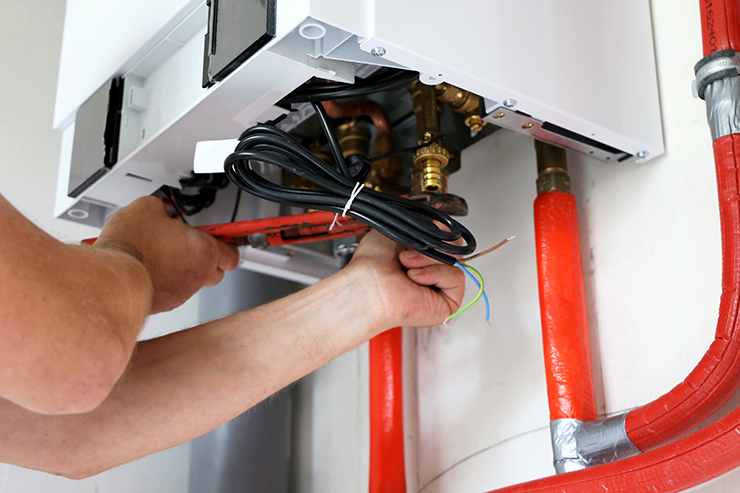
On average, a heating engineer will charge a rate of between £60 and £180 an hour, though this will vary depending on who you hire, and where you live in the UK.
It usually takes between half a day and a full day to install a boiler, averaging out to anywhere between £500 and £1,000 for an installation (not including the cost of your boiler). If you also need a Powerflush, then this will take an additional day. In some instances, an installation might cost upwards of £1,500, depending on the specific requirements of your installation.
How much does a new system boiler cost?
On average, a new system boiler will cost you between £2,500 and £4,000.
System boilers are made up of two parts, the boiler itself, that heats your water, and a cylinder that stores it.
They’re great for households with multiple bathrooms where hot water is needed by several people at the same time. This is because they can run fast, high-pressure hot water from multiple taps.
Usually, your system boiler fits in a small cupboard, whilst the cylinder sits in an airing cupboard. Normally, all the parts of a system boiler are fitted into a single unit, making them really easy and quick to install.
Though they offer on-demand hot water, this depends on how big your cylinder is. You may also need to buy storage for your cylinder.
This price can be affected by the brand you choose for your boiler, how long the warranty is for it, and whether the installation will require additional costs such as condense pumps or valves.
| Pros of a system boiler | Cons of a system boiler |
| Can supply hot water to multiple taps faster and without affecting pressure Don’t require a cold water tank like conventional boilers do, saving space Easier to install than conventional boilers (all components built into one unit) | Hot water is heated in advance, so you need to know in advance when you will need it Amount of hot water depends on cylinder size You need to make sure your boiler is well insulated, or it will lose heat You will need to buy storage for the cylinder |
System boilers can be fuelled by oil, gas, or electricity.
Close section ↑How much does a traditional boiler cost?
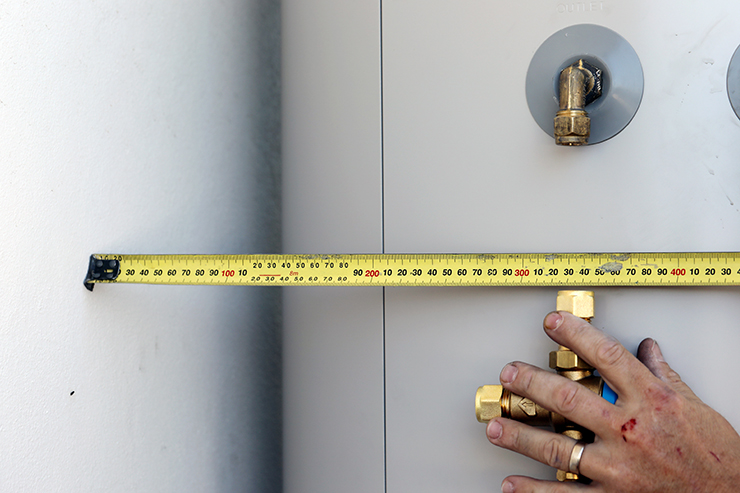
The average cost of a new, conventional boiler is around £2,800, or anywhere between £2,100 and £3,600. How much you end up spending will be determined by the type of boiler you buy and the intricacies of the installation, as well as your location in the UK.
Traditional, or conventional boilers, get their name from being the oldest type of boiler still regularly sold in the UK.
They need both a cold water tank, normally stored in a basement or loft, as well as a hot water cylinder in an airing cupboard. This means they take up lots of space. However, their water pressure is great, and they’re good at supplying hot water to your whole house at the same time.
They’re also compatible with energy-efficient options like solar thermal systems. However, they’re less efficient than other types of boilers if you don’t insulate the cylinder well.
| Pros of a traditional boiler | Cons of a traditional boiler |
| If you already have a traditional boiler, replacing one is easy, requiring only a little pipework Hot water can run from multiple taps, quickly and with high water pressure Compatible with energy-efficient options Good for houses that have low water pressure Easy to maintain | You will need to install an immersion heater if you want to make sure you’ll still have hot water if the boiler breaks down Take up lots of space More expensive to install Hot water limited to the size of your cylinder |
How much does it cost to have a combi boiler installed?

The average cost of a new combi boiler installation is between £2,850 and £3,500.
Combi boilers, short for combination boilers, are the most popular type of boilers sold in the UK.
They control both the central heating, and the hot water in your home, by heating water directly from your mains rather than storing hot water inside a tank. This means that they’re fairly compact to install, and have no limit when it comes to how much hot water they can provide.
The other great thing about combi boilers is that they can help you reduce your carbon footprint. They have a high energy efficiency and are cost-effective because they only heat the water you need at any given point during the day.
However, the water pressure can weaken if you run more than one water source at the same time. If your combi boiler broke down, it would leave you without hot water, as it doesn’t have a backup source unless you also have an immersion heater installed.
Expect to pay more if you live in London or the South East.
| Pros of a combi boiler | Cons of a combi boiler |
| Unlimited hot water Eco-friendly Cost-effective Doesn’t take up a lot of space (can fit in a cupboard as it doesn’t require a cylinder) Easier and faster to install than conventional boilers | Water pressure weakens when multiple taps are run No backup water source |
There are several types of combi boilers for you to choose from, depending on what fuel you want to use. Combi boilers are compatible with gas, electricity, oil, and LPG.
Close section ↑How much does it cost to have a biomass boiler installed?
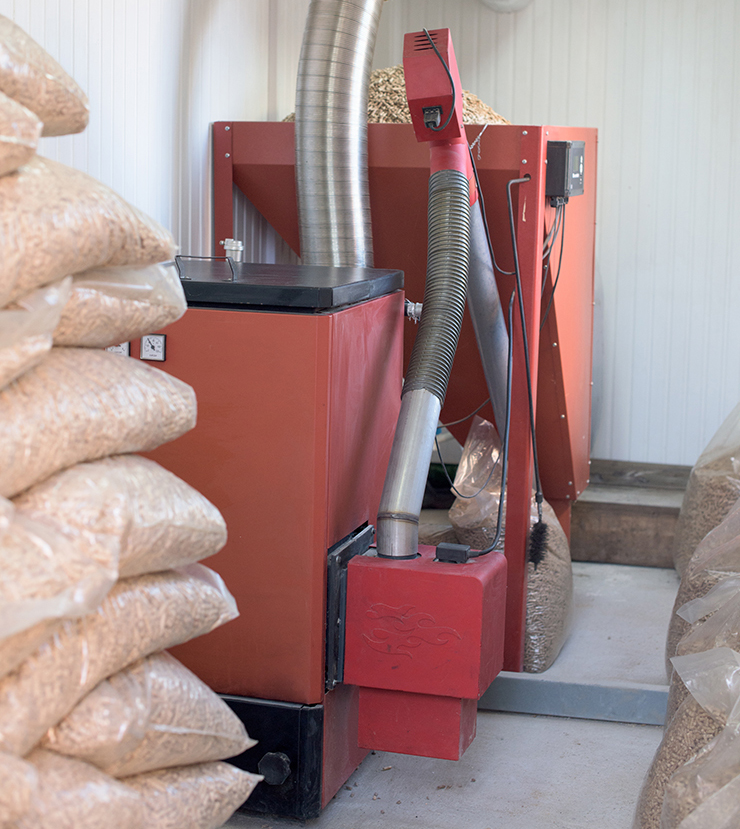
Biomass boilers are also called wood boilers because they run by burning sustainably sourced wood pellets. They’re the most affordable way to generate heat, so they can save you money in the long run. They’re also carbon neutral, making them a great, eco-friendly heating solution.
They’re more expensive to fit, and also have additional costs, like wood delivery service fees. However, because biomass boilers are eco-friendly, the government offers money back through the Renewable Heat Incentive Scheme, to encourage homeowners to buy one, making fuel costs much lower.
This means that, although it costs more to install them, they do save money in the long run.
On average, a biomass boiler will cost you £15,500 to buy and install. That’s around £10,500 for the boiler itself (between £7,200 and £12,500), and around £3,000 to £5,000 for the installation.
Prices are also affected by whether you want a manually fed biomass boiler, or an automatically fed boiler. A small (15kW), manual fed log boiler could cost as little as £4,000 (materials only), whereas large (up to 1000kW) automatically fed pellet boilers can cost upwards of £25,000. Tell us what you need, and get a free quote today.
| Pros of a biomass boiler | Cons of a biomass boiler |
| Affordable wood pellet fuel (renewable heat incentive payments from government means you’re likely to get your money back in the long run) Carbon neutral, reducing your carbon footprint | More expensive to buy and install than most boilers You need somewhere to store the wood, so take up a lot of space Require an annual service to deliver fuel |
A biomass boiler can increase the value of your home by over £11,000.
Fuel costs roughly £100 per tonne for wood chips, £210 per tonne for wood pellets, and £99 per tonne for wood logs.
Close section ↑Which brand of boiler is the best?
Worcester Bosch, Baxi, and VIessmann are household names, but there are a lot of good boiler brands, all of which have excellent reputations.
You want a boiler that ticks these four boxes: reliability, price, support, and warranty. The below are ten top-class boiler brands used by UK homeowners:
- Worcester Bosch
- Viessmann
- Valliant
- Alpha
- Baxi
- Ideal
- Glow-Worm
- Vokèra
- Intergas
- Potterton
We recommend you shop around and look at multiple boilers before you choose one.
Close section ↑What is the cheapest way to get a new boiler?
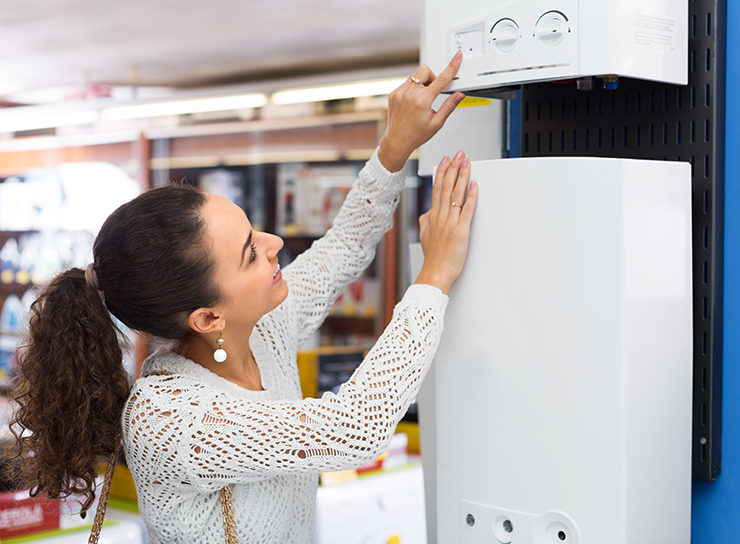
The below are some tips to help you save money on your new boiler installation:
- Always ask for multiple quotes before you make a choice on what boiler you want to buy, and who you want installing it. It’s a good idea to have a sense of how much a new boiler could cost you (upper and lower ranges) so that you can feel confident that you’re getting your money’s worth.
- Make sure you have a clear idea of what is included in your package – hidden extras can bring up prices, so make sure the quote you get includes the cost of the boiler, installation, and any add-ons you might want, such as a smart thermostat, old boiler removal, and a system filter and cleanse.
- Know what size boiler you need for the size and number of inhabitants of your household. This will avoid you paying for energy that you’ll only end up wasting. The below guide should help give you a sense of what size boiler you should get.
- Buy a trusted brand – a good quality, reliable boiler may cost you a bit more up front, but it will definitely save you money in the long term. You’re better off spending money on a good boiler rather than on boiler repairs every time yours breaks down. Look out for boilers that come with a long warranty – this is usually a good sign that a product is likely to last without problems.
- You don’t have to buy a boiler from your energy provider. They’re often more expensive, and you will be pressured into buying on the same day to avoid you shopping around for cheaper alternatives.
What size boiler do I need?
| Number of bedrooms | Number of radiators | Number of bathrooms | Recommended size | |
| Combi boiler | 1-2 | 0-10 | 1 | 24-27kW |
| Combi boiler | 3-4 | 10-20 | 1-2 | 28-34kW |
| Combi boiler | 4+ | 20+ | 3+ | 35-43kW |
| System boiler | 1-2 | 0-10 | 1 | 9-18kW |
| System boiler | 3-4 | 10-20 | 1-2 | 18-26kW |
| System boiler | 4+ | 20+ | 3+ | 27-40kW |
| Traditional boiler | 1-2 | 0-10 | 1 | 9-18kW |
| Traditional boiler | 3-4 | 10-20 | 1-2 | 18-26kW |
| Traditional boiler | 4+ | 20+ | 3+ | 27-40kW |
Can I get a free boiler from British Gas?
Some people qualify for an Energy Company Obligation (ECO), essentially a boiler grant. If you do, you could save a lot of money when you buy and have a new boiler installed.
To qualify, you have to:
- Be a homeowner
- Qualify for certain benefits, like pension credit or child benefits
- Your boiler must be over 5 years old
For more information, and to find out whether you qualify for an energy grant, read this government endorsed advice on ECOs.
Close section ↑Where is the best place to put a boiler?

The most common places to put a boiler in your home include your kitchen, bathroom, an airing cupboard, your loft, a utility room, or a garage.
Your kitchen is a good place for a more compact boiler like a combi, whereas lofts, garages, and utility rooms are better for larger boilers, such as traditional boilers.
One thing to keep in mind is that boilers can be fairly noisy. Though more modern models are much quieter, you might want to avoid putting yours near a bedroom. If you’re thinking of putting your boiler in a bathroom, you will have to follow a number of regulations, due to a potential electrical-hazard. Boilers in bathrooms have to be inside a cupboard, and the system’s electrical spur has to be outside the bathroom.
If you want your boiler in your garage, it will keep it out of the way, but you will also have to protect it from frost with extra pipe insulation during the winter.
Close section ↑Boiler regulations
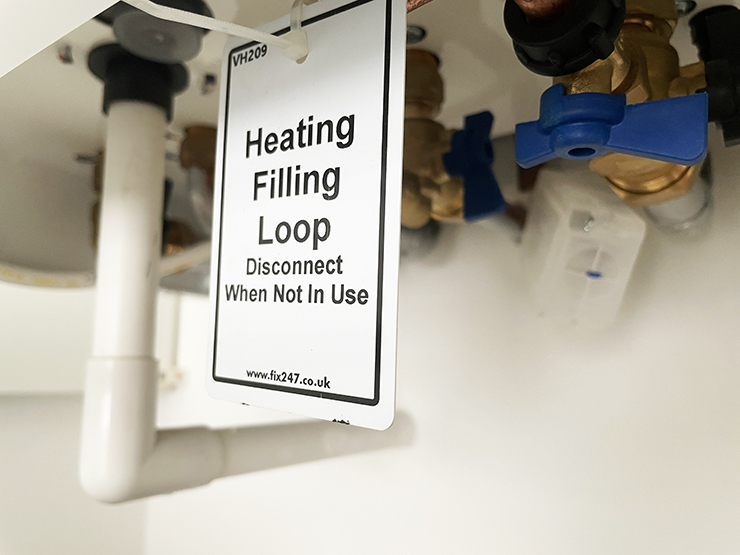
You will have to make sure your boiler complies with a number of regulations, in order to be sure your new system is safe and following the current law. This includes:
- You must hire a Gas Safe registered engineer
- Your boiler must be condensing, and must have an A rating (92% efficiency)
- Gas boilers must be fitted with time and temperature controls
- Combi boilers have to have one of these: a smart thermostat, a Load Compensation device, a Weather Compensation device, a Flue Gas Recovery System
- A discharge pipe has to be fitted to a suitable foul water drain, due to condensation build-up
For more information on regulations, take a look at the PlanningPortal building regulations webpage.
The tradesperson who comes to fit your new boiler will know all these things, so you don’t have to worry. You do have to make sure you hire the right person though. We recommend you ask for multiple quotes. Let us know what you’re looking for, and get some free quotes today.
Conclusions
A new boiler might seem like an expensive item to replace, but old boilers are nowhere near as efficient as more modern models. A new boiler can help you save money on your heating bills, lowering your carbon footprint in the process.
Which boiler you decide to go with will depend largely on what you already have, and what kind of boilers your home would be well suited for. How much warm water you need (and how much you run hot water from multiple taps at the same time) will also determine your choice of model.
If you think it’s time to upgrade your boiler, let us know what you have in mind, and get some free quotes today.
*The Rated People cost guides are produced in collaboration with the quote-building platform PriceBuilder, and a range of tradespeople across the 30+ trades on our platform were consulted. Please note that the prices included are for guidance only – how much you end up spending will depend on the specific requirements of your project.

